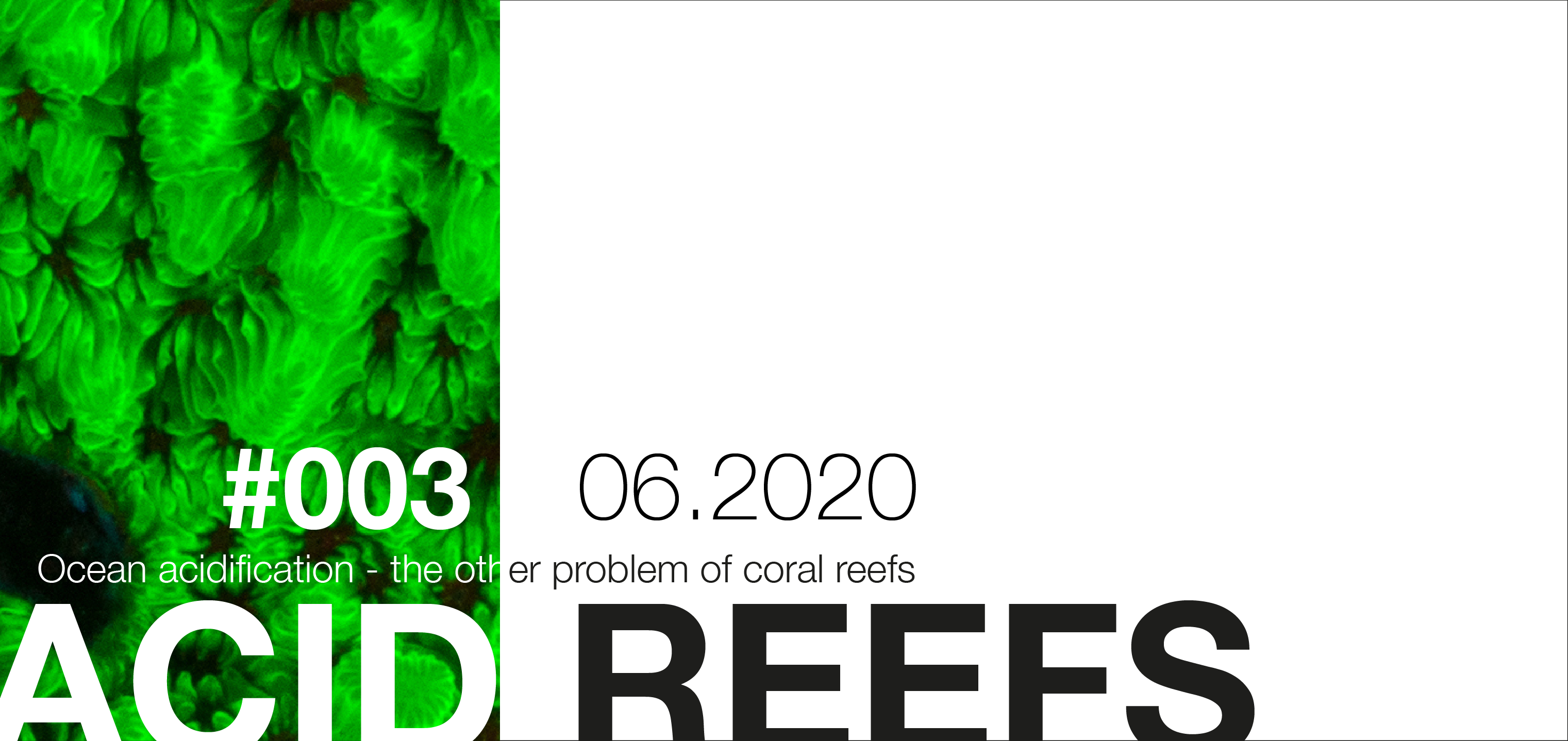
OCEAN ACIDIFICATION – THE OTHER PROBLEM OF CORAL REEFS !
The future of coral reefs in the Anthropocene era is now threatened by the billions of tons of carbon dioxide emitted into the atmosphere. Ocean acidification (OA) is thus, after global warming, the other problem that coral reefs will have to face.
The overall objective of ACID REEFS is to better understand the response of coral reefs to ocean acidification through an integrated approach. ACID REEFS is lead by Dr. Laetitia Hédouin (CNRS) from the Center for Island Research and Environment Observatory in Moorea.

What is Ocean Acidification ?
Oceans absorb 1/3 of the total atmospheric CO2 of the planet and transform it into carbonic acid, a weak acid, which dissociates underwater to become bicarbonate molecules and hydrogen. This process was balanced for billions of years to maintain equilibrium of the physical and chemical parameters of our Ocean. But since the industrial revolution, the amount of CO2 dissolved in our oceans is increasing and they are not able anymore to maintain equilibrium. As a consequence, bicarbonate and hydrogen molecules increase in our Oceans and lead to a decrease in the water pH, meaning that the Ocean water is becoming more and more acid compare to what it used to be.
What is impacted by Ocean Acidification?
Ocean Acidification is impacting the health of the marine world at various levels from the biology and physiology of the organism to the entire ecology of the ecosystem. As an example, Ocean Acidification can impact the primary productivity of corals and its symbionts (unicellular algae that live within the cells of the coral host and that provides energy to the animal via its photosynthetic activity) that limits the coral skeleton calcification rate. As a consequence, the coral growth rate decreases and the skeleton is fragilized by a reduced density and increased porosity. In addition, Ocean Acidification can cause modifications in bacterial and algal communities that in turn can affect recruitment and settlement of coral larvae to the reef. All together, these events may lead to a reduce coral coverage or loss of diversity along the reefs of the planet. The crucial interactions between coral-algae-herbivorous animal may also be impacted as well as the global ecosystemic service, essential to the socio-economical field in many human cultures.
How is the impact of Ocean Acidification studied in the ACID REEFS project ?
ACID REEFS covers all these various aspects of the impact of Ocean Acidification on the coral reefs are studied in detailed by integrative approaches combining the expertise of the collaborators (see Newsletter 1). A powerful methodology is combining data from the field – in situ – with data from the lab in controlled conditions using specific set up design for the project. At a laboratory level, an ACID REEFS room has been built to control pH and temperature in 9 mesocosm that allows reproducing future scenario of OA conditions. The entire experimental work was performed in this well-design room.
Research progress
Various approaches have been used in ACID-REEFS to assess both the response of organisms and those of socioecological systems to AO. At the organism level, the studies mainly included aquarium experiments controlling AO conditions, and observing the physiological response (respiration, growth, calcification), photophysiological performance and / or behavior (food, movement, metamorphosis). In complementary field analyses regarding evolution and dynamic of coral reefs in Moorea was provided by the SNO Corail (http://observatoire.criobe.pf/wiki/tiki-index.php). These databases on the coral cover and the abundance of reef fish allowed the analysis of the dynamics and the evaluation of the resilience of the coral reefs of the island of Moorea. Finally social surveys have been carried out to establish certain social indicators necessary for studying the vulnerability of socioecosystems, but also to get insights how civil society perceive the threat of OA on marine systems and especially coral reefs.


